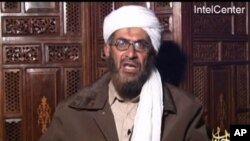The United States has welcomed the killing in Pakistan of al-Qaida's third-ranking leader, Mustafa Abu al-Yazid, saying his death is unquestionably a severe blow to the terror network.
Listen to an analysis of al-Yazid's killing in this interview with terrorism expert Steven Emerson by VOA's Les Carpenter
White House spokesman Robert Gibbs made the remark Tuesday after al-Qaida announced Yazid's death in a message posted on the Internet.
Gibbs said Yazid was probably killed in a drone missile strike in North Waziristan last month, along with members of his family.
A U.S. official who asked not to be identified told VOA earlier that reports of Yazid's death were likely accurate and that his killing would be a "big victory" for counterterrorism.
The Egyptian-born Yazid, also known as Sheikh Saeed al-Masri, was a founding member of al-Qaida and a prime conduit to the group's leader, Osama bin Laden.
Yazid ran al-Qaida's activities in Afghanistan and Pakistan, with responsibilities ranging from finances to operational planning.
He allegedly managed bank accounts based in the Middle East that were used to finance the September 11, 2001 terrorist attacks in the United States.
Yazid became involved in extremist movements as a young man, including the Islamic Jihad group founded by fellow Egyptian Ayman al-Zawahri. He served three years in prison during the 1980s for involvement in the 1981 assassination of Egyptian President Anwar Sadat.
The U.S. official told VOA the death of top al-Qaida leaders like Yazid is "further proof that Pakistan's tribal areas are not quite the safe haven al-Qaida and its allies thought them to be."
Some information for this report provided by AP, AFP and Reuters.




